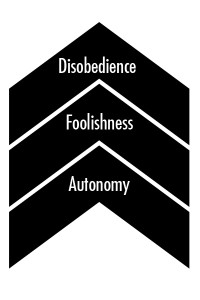This was an absolutely amazing weekend. Such awesomeness can't possibly be covered in just one heading, wo we'll use three. Here we go.
Good Friday
For all the effort that we put into Sundays, it was really sublime to come to Good Friday's service. Simple, quiet, and deep. We came together to remember the beautiful tragedy of the cross. Beautiful because in God's design, we came to be saved by it. Tragic because it was necessary in the first place.
What it Was and What it Does
The cross is an historical event with a metaphysical significance. So it's important that we understand both what it was and what it does. The cross was a real, physical, historical instrument of sadistic torture and murder. In modern times we've made it into a piece of jewelry that confers style and a bit of luck on the wearer. Everyone from rap stars to porn stars bedazzle themselves with the jewelry of torture, divorced from its history. The cross means murder and death. And knowing this allows us to move from what it was to what it does. Jesus died so we can live. We wear the cross, sing the cross, preach the cross, and glory in the cross precisely because we didn't have to go to the cross. Jesus' death means our life.
You Need Quiet
If our worship is always only loud and happy, then our worship isn't real. Good Friday reminds us that we can still sing when the news is hard. When Christians sing about the horror of the cross, they show its power. Jesus' death is something that we worship God through. We need the quiet of those moments. We need sometimes to gather as a body and hush, pray, weep, and meditate. When we don't, we make Christianity look glossy, polished, and fake. We need the quiet, and the world needs to see us quietly worshipping sometimes.
The 3rd Annual Easter EggStravaganza
This event blew. my. mind. It was hugely attended, enormously fun, and even covered by the Boston Globe. Here are my highlights...
We Love our City
Many times I'm asked, "Yeah, but Pastor how many people actually show up at church on the back of these events?" Answer: not many. But, that's not the primary reason we do them. We do them because we love our city. Easter shows us that God loves us in a way that's free for us but very costly for Him. It's good to model that. It was expensive, time-consuming, and a mad rush to pull of. And it was totally worth it.
I Love our People
You people bless me like crazy. You're the volunteers that arrive early and stay late. You show up, pay for stuff, put candy in eggs, pick up trash, talk to people about Jesus, and so much more. I've got nothing but love for you. You know who you are. Thank you.
More than We Imagined
We basically doubled our attendance this year. Estimates range from 2,500 - 3,500 people walked through our Egg Hunt. That's awesome. What a privilege to show some love to that many.
Resurrection Sunday
Our attendance exploded. We set a new record by hundreds. But way cooler than that was the joy that lit up our celebrations. Jesus is alive, and that fact is simply more important that me, us, our numbers, or anything else. Celebrating that is a privilege of the church.
Love Your Volunteers
Seriously. Two Services. Two full-service Aletheia Kids experiences. A bajillion cups of coffee. Approximately eleventeen thousand bulletins stuffed. Show some love to the vols and the leaders, people.
Resistance is Futile
Paul says that our battle is not against flesh and blood, but against demonic forces. Guess what, sometimes they show up to church too! We encountered some real, present, spiritual resistance on Sunday. Call it thickness. But we prayed, we praised, and we preached the resurrected Jesus. Resistance against that message is futile. We know how the story ends. Jesus won, and Jesus wins.
Resurrection Means Peace and Power
When Jesus appeared to the disciples while they were cowering the upper room, he gave them peace and power. Peace because he won the victory, so they needed fear no longer. Power because they (and we) were commanded to go make disciples. We can't do that alone. We need power for mission. So, lower the drawbridges, church. The resurrection means we've got something to say out there in the big bad world.
Fruit Requires Focus
Okay, congratulations church. We've exploded in spectacular growth. Let's all be happy about that. For a moment. Then, let the startling reality of what that means hit you. Now, let the happy turn to focus. We're called to make disciples who bring the truth, grace, and changing power of the gospel for the glory of God and the good of all people. Big meetings are a part of that, but they themselves aren't that. So, let's roll up our sleeves, open our homes, start dozens of new community groups, and get to work. We've got fruit to bear.



